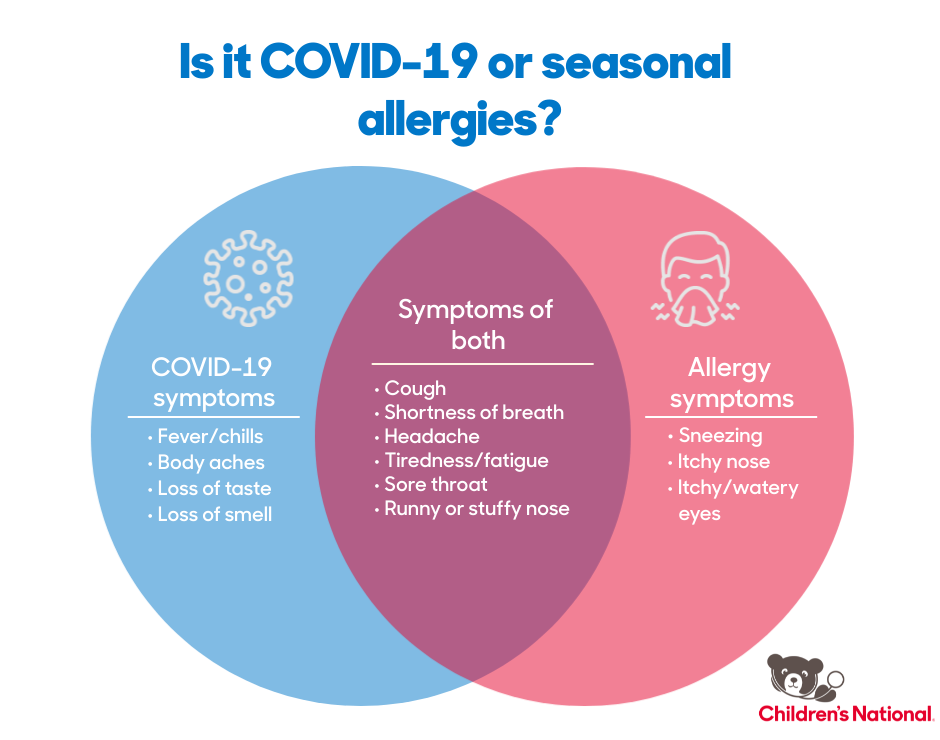


If your child has new symptoms, they should have a COVD-19 test.Seasonal allergies and COVID-19 have a number of the same symptoms, so it is difficult to tell if your child has one, the other or both.Avoid your child touching their face as much as possible, especially rubbing their eyes and nose while suffering from allergic symptoms.Wear a face mask if your child is old enough to do so safely when outside.Physically distance from people outside of your own household.Please see our Kids Health Info fact sheet on Decrease your child’s risk of being unwell with Epidemic Thunderstorm Asthmaįor information on prevention and treatment of seasonal allergies, please see our Kids Health Info fact sheet on.Avoid allergy symptoms which are similar to those caused by respiratory infections.Reduce sneezing and coughing which can spread respiratory infections such as COVID-19.It is important to prevent and treat seasonal allergies to: While some of these symptoms may be similar to those caused by a viral infection (such as colds, COVID-19 and flu), allergy symptoms tend to continue unless treated with medication. Symptoms include a runny, itchy or blocked nose, sneezing and itchy or watery eyes. Seasonal hay fever is caused by the nose and/or eyes coming into contact with allergens in the environment, such as pollens (grasses, weeds or trees). Seasonal allergies What causes seasonal hay fever? You can find a list of local testing sites on your state government COVID-19 website. If your child gets new symptoms at any time, even if they had a negative test initially, your child should have another test. If your child has new symptoms that you think might not be hay fever and match the case definition of COVID-19, they should have a COVID-19 test. The below diagram explains the common symptoms of COVID-19 and seasonal allergies, and the symptoms both COVID-19 and seasonal allergies share.įigure 1: Common symptoms associated with Allergy and Coronavirus. Signs and symptoms of seasonal allergies (hay fever) and COVID-19 (coronavirus) Despite its name, hay fever doesn’t actually cause fever and while some symptoms are similar to COVID-19, there are also differences. The symptoms of Coronavirus (COVID-19) and seasonal allergies like hay fever (also known as allergic rhinitis) are similar and it can be difficult to tell if your child has one or the other, or both. If you are concerned your child has COVID-19 please call the dedicated hotline on 1800 675 398 or visit for more information.


 0 kommentar(er)
0 kommentar(er)
